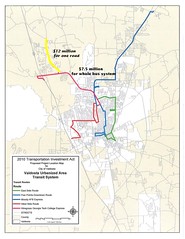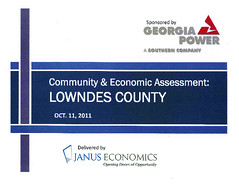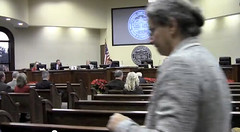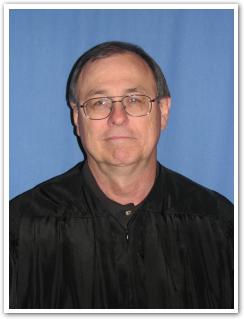Please find attached the “Transportation in the Region” newsletter for the Southern Georgia Regional Commission and the Valdosta-Lowndes Metropolitan Planning Organization. For more information please visit our website at www.sgrc.us/transportation.I’ve put a copy on the LAKE website here.
Here’s the lead story:
Local Discretionary Project Lists for TIA
On October 10, 2011 the Southern Georgia Regional Transportation Roundtable approved a regional transportation project list that contains 75% of the funds this region would receive if a transportation sales and use tax is approved by the voters on July 31, 2012. The tax is estimated to generate $670,985,361 total; $503,239,020 of which is reserved for the 75% regional projects list.The remaining 25% of the funds ($167,746,439) are allocated to local governments by formula (based on population and road centerline miles). While these funds are to be spent at the discretion of each local government on transportation related projects, it is recommended that
your local government begin to consider how these funds might be spent over the next 10 years. By identifying these projects now, your local voters will be able to know how all of the funds from this proposed sales and use tax will be spent in their local community.
In order to have a central source for information about the proposed sales tax, we are asking local governments to submit their project lists for the 25% discretionary funding by March 31, 2012 to the following address: SGRC; ATTN: Corey Hull; 327 W Savannah Ave.; Valdosta, GA 31602; or by email at chull@sgrc.us.
 It will be interesting to see what projects local governments submit.
Maybe you’d like to suggest something to them.
It will be interesting to see what projects local governments submit.
Maybe you’d like to suggest something to them.
Hm, looks like there’s plenty of discretionary funds for a
bus system
 such as is recommended by
the Industrial Authority’s Community Assessment.
such as is recommended by
the Industrial Authority’s Community Assessment.
-jsq








